Giulia Manca is a woman living alone on Pianosa Island in the Maddalena archipelago off the northern coast of Sardinia, Italy. Pianosa is a remote, uninhabited island, home only to an old fortress and an abandoned lighthouse. Giulia Manca has lived on this island for many years and is the only female resident in a predominantly male setting.
When Giulia Manca first set foot on Pianosa Island, Italy, in 2011, she anticipated a relaxing holiday under the sun and the clear blue sea before returning home. However, she never expected to form such a strong connection with this island. Later on, she returned and committed to a long-term mission: helping rehabilitate former prisoners!
Giulia Manca is now the sole woman living on Pianosa, once dubbed the “Island of the Damned.” She manages the Milena Hotel on the island and oversees a rehabilitation program for inmates. This program is operated by Arnera, a non-profit organization dedicated to assisting vulnerable individuals.
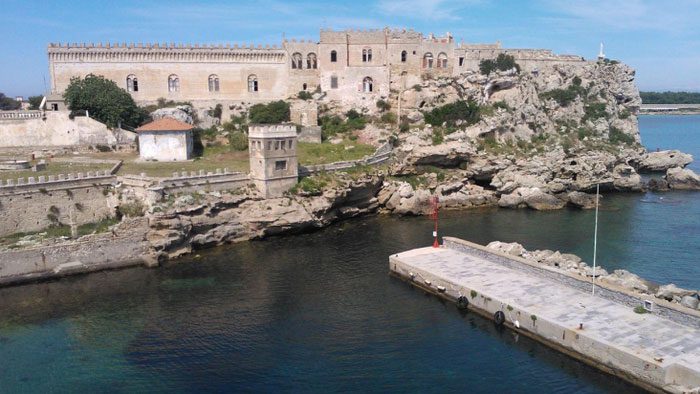
Pianosa Island, Italy.
Rehabilitation Hotel
“I stayed at the Milena Hotel for a week and didn’t want to leave,” Manca told CNN about her first visit to the island in 2011. “It was a unique holiday, and the rehabilitation project intrigued me, especially the chance given to these inmates for a second chance in life.”
“I fell in love with Pianosa. Its tranquility, the paradise-like blue sea, and the peaceful starry nights.” This is how Manca describes Pianosa Island, located in the Tuscany region of Central Italy.
Once known as the “Island of the Damned,” Pianosa has now become a beloved holiday destination thanks to its beautiful beaches and lush vegetation.
However, what stands out the most is that Manca is the only woman here, with male staff and even inmates serving at the hotel.
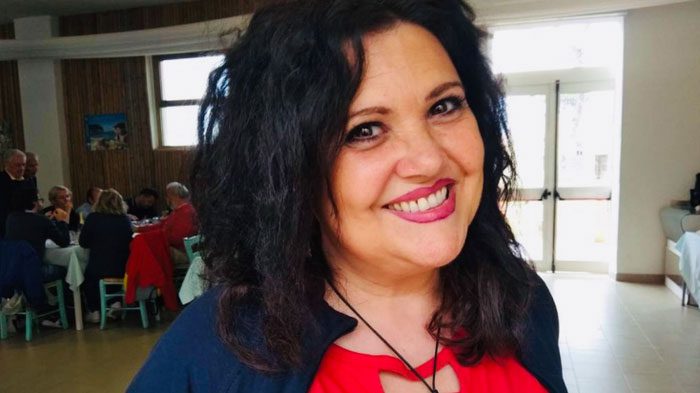
Giulia Manca is the only woman living on the island.
According to CNN, as one of the two permanent residents of the island, Manca lives and works alongside a male warden. Additionally, there are about ten male inmates who serve as cooks, gardeners, waiters, beach cleaners, and dishwashers at the Milena Hotel, the only accommodation facility on the island.
Surrounded by pine trees, the Milena Hotel features a painted ceiling and has 11 rooms furnished with wood and stunning sea views, as well as a large terrace where inmates serve evening drinks to guests at the restaurant and bar.
Manca was once a guest at this unique hotel in 2011. At that time, the manager informed her that the business was facing financial difficulties and was at risk of closing. If that happened, the inmates would have to return to prison, ending their rehabilitation period on Pianosa.
“I felt I had to do something to help them; otherwise, they would have to go back behind bars, into cramped cells. They wouldn’t have the opportunity to start over or learn a trade that could help them after their release,” Manca, who has a background in tourism, added.
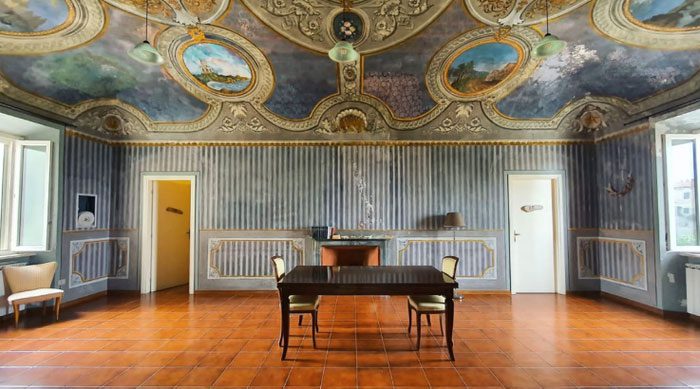
Milena Hotel has become a popular venue for birthday parties and weddings.
Manca decided to stay and take on the role of hotel manager. She mentioned that initially, she worked without pay, using her management skills to help secure the hotel’s future.
Within a few years, Manca turned the situation around. The Milena Hotel became a popular venue for birthday parties and weddings. People flock to the island, partly out of curiosity about a place where the staff consists entirely of inmates.
Everyone Deserves a Second Chance
Located near Gorgona, another prison island in Italy, Pianosa was established in the 1700s to imprison outlaws, pirates, and revolutionaries.
The island served as a base for a high-security prison until 1998 when it closed. Some residents eventually left, and Pianosa remained abandoned for many years. Tourists were not allowed to visit the island until recently, and those who did could only do so as part of an organized boat tour, which had to be booked through specific travel agencies.
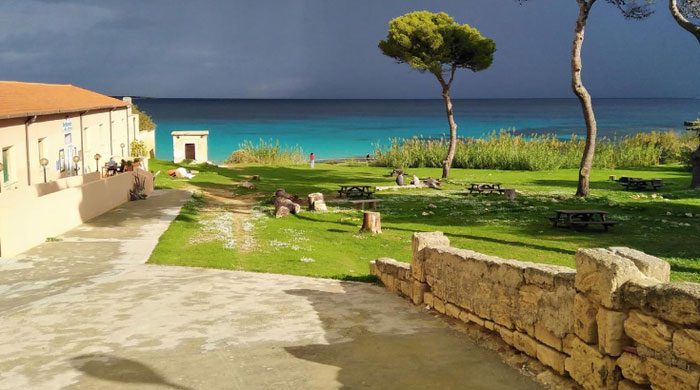
Pianosa has become a popular resort thanks to its beautiful beaches and lush vegetation.
To participate in the rehabilitation program at the Milena Hotel, inmate candidates must meet specific criteria, including having served at least one-third of their prison sentence and passing a series of rigorous psychological and social assessments.
Over the past 12 years, Manca has overseen around 100 inmates on parole for various offenses, including murder.
Despite living among male inmates, Manca always feels comfortable on the island and considers it a “safe haven.”
She believes that those who have committed crimes should have the opportunity to contribute to society rather than just sit behind bars.
She states: “I believe in the power of repentance and that even offenders deserve a second chance. They shouldn’t bury their lives behind bars but actively participate in rehabilitation efforts. I enjoy seeing them return to life through work.”
Known as the “Queen of Pianosa,” Manca admits that her job has caused her friends and loved ones to “worry.” Everyone thinks about the risks of being the only woman among a group of male inmates.
Manca says: “People keep saying I’m crazy for taking on such a job. I am the only woman working and living alongside male inmates, but I have never felt afraid or anxious. I have never thought like that. I feel safer here with them than going back to a city full of lurking dangers. You never know who you might run into.”
Although she is responsible for supervising a group of inmates, Manca strives to create clear boundaries to ensure the effectiveness of the rehabilitation program.
Manca explains that her relationship with the staff is one of mutual respect, and she achieves a balance by maintaining distance and showing authority while being open to support them.
Every week, Manca takes a ferry for a three-hour journey across the sea to the mainland in Tuscany to handle administrative tasks, leaving at dawn and returning to Pianosa at night.
Manca points out that unlike nearby Gorgona Island, where inmates must return to their cells after hours, those on Pianosa are allowed to move freely.
When Kindness is Rewarded
The inmates here receive a monthly salary for their work at the hotel. In terms of housing, they rest in the old prison quarters, which have all been renovated into cozy studios with a gym, TV, kitchen, and private bathrooms. They are even provided with mobile phones to keep in touch with their families.
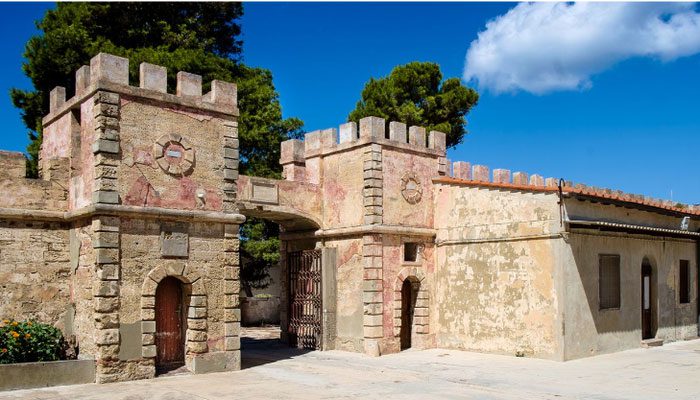
Inmates are paid monthly for their work at the hotel.
According to a 2020 report by the Council of Europe, prisons in Italy are considered some of the most inhumane and overcrowded in Europe, with 120 inmates per 100 beds, while the suicide rate in prisons has increased by 300% since 1960, with a 75% recidivism rate.
Thus, Pianosa is certainly a “much more appealing” choice for those nearing the end of their sentences.
Manca takes pride in the success of the “Pianosa Model.” She explains that the recidivism rate for those who have spent time on the island has dropped to 0.01%.
Manca explains: “In the evenings, they can freely go down to the beach and relax. However, they must leave their quarters early in the morning and return by a specific time in the evening; they are still monitored and have guards keeping an eye on them.”
Inmates can serve the remainder of their sentences while working at the hotel if they maintain good behavior, and some have been here for 5 to 10 years.
Of course, those who do not comply with the “rehabilitation” will risk being sent back to prison to serve the rest of their sentences.
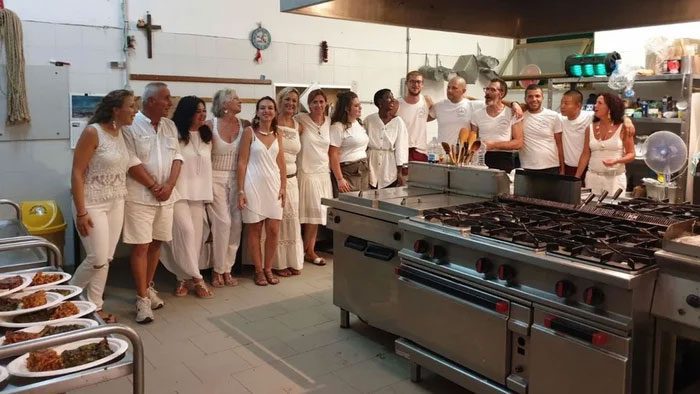
Tourists taking photos with male inmates working as hotel staff in Pianosa.
“All of them must serve at least one-third of their sentence and undergo strict psychological and social evaluations to determine that they are no longer dangerous and are suitable for the rehabilitation program. They must genuinely regret what they have done,” Manca added.
“Every day they must demonstrate a readiness to work and prepare for a better life.”
Manca enjoys staying in touch with those who have left Pianosa to start a new life, utilizing the skills they learned on the island, through social media.
She explained that some individuals have become council members for inmates in other prisons after working at the hotel.
Manca takes immense pride in her role in the rehabilitation process for these inmates and stated that those who were initially skeptical about her decision to stay in Pianosa years ago have since changed their attitudes.
Manca said: “Even my daughter Yolanda, who was a bit skeptical about my work when she was younger, now appreciates this job and understands the importance of what I do. Now she tells me that I am a lucky person.”


















































